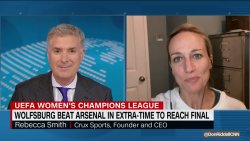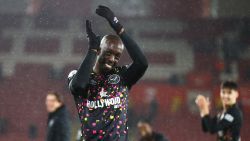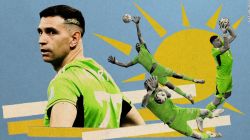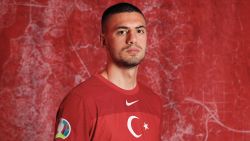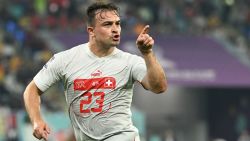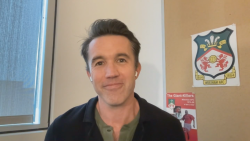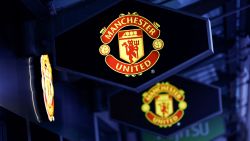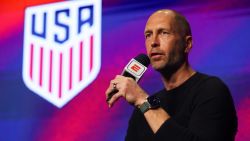He’s the football superstar that gained the acclaim of thousands due to his cult status in the virtual world of gaming.
In the long running Football Manager game, which allows gamers to control teams and buy and sell players in minute detail, even simulating the sporting consequences of Britain leaving the EU, Cherno Samba found himself in the same bracket as Zlatan Ibrahimovic.
In real life though, Samba’s sporting career was altogether tougher to navigate and he’s haunted by a series of what ifs.
What if he had joined Liverpool when they came calling during his teens?
What if he hadn’t moved to Spain, where he reached his lowest, suicidal, ebb?
What if he had become the superstar many expected based on his cult gaming persona?
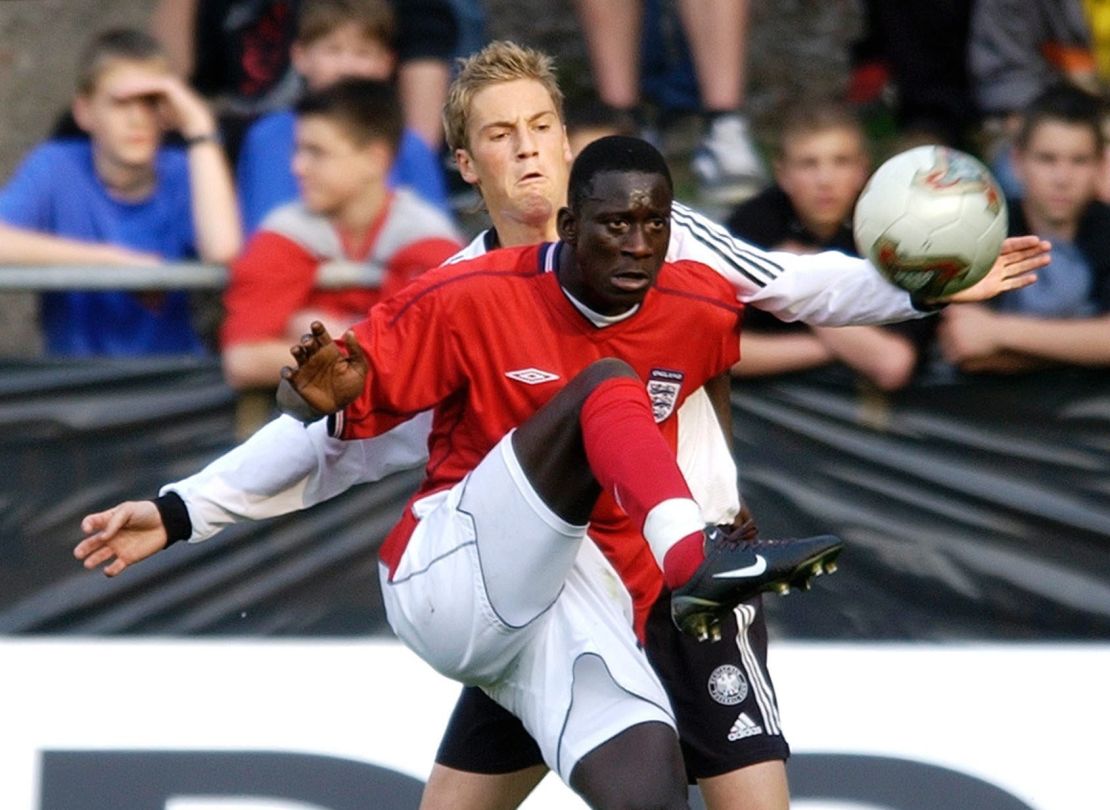
Visit cnn.com/sport for more news and videos
Makings of a wonderkid
Samba was six when he traveled from Gambia to London to join his family in 1991.
“I wasn’t thinking about anything in terms of being a footballer,” Samba told CNN Sport. “I was just so happy that I was coming to reunite with my mum and my brother more than anything else to be honest.”
Soon though, his talent came to the fore. “I remember when I was 10 and we had a game for my primary school and I think I scored like eight goals. You could see that even my teammates were looking at me differently at that age.”
He was snapped up by local club Millwall – then an English second-tier side – and Samba enjoyed a prolific spell at academy level, scoring 132 goals. By the time he was 14 he’d made his way into the England schoolboy set-up.
His talent brought him to the attention of Manchester United, Leeds, Arsenal and Liverpool. Samba was a Manchester United fan, but it was Liverpool that made the most persuasive pitch.
READ: Mamadou Sakho - From humble beginnings to ‘giving back’
READ: Giorgio Chiellini - ‘Just being able to play football is not enough’
A shock to the system
“The club that really stood out to me was Liverpool, because of the way they conducted themselves – they made me feel welcome. So I decided it was Liverpool that I was going to go with.”
While the two clubs negotiated a deal, Samba was on tenterhooks as he waited to hear from his mother, father and agent when he would complete his dream move.
Except the deal fell through.
“I just dropped in the kitchen,” recalls Samba. “I think I was what, 15. Just dropped to the kitchen and started crying. Just devastated – devastated. And I think from then that’s when my world shattered to be honest.”
After a six-month hiatus from the sport he loved, the already jaded Samba chose to remain at Millwall, agreeing to a three-year professional deal that would come into play on his 17th birthday.
Yet a new kind of pressure was soon heaped upon his shoulders.
Having starred in an England Under-17 squad that featured Wayne Rooney, Samba was singled out as a wonderkid in the 2001 edition of Football Manager (then called Championship Manager), which the previous year had anointed Ibrahimovic as the world’s next great striker.
The weight of expectation proved taxing for Samba.
“I was actually trying to compare my stats from the computer game to my general playing. Sometimes the lads that I would be playing against would be teasing me, and saying ‘that’s your stats, and you’re not doing that now’ sort of thing.”
“So it was playing on my mind, and sometimes before a game I’d think ‘the world knows me in these sorts of stats – I have to deliver.’”
Under increased scrutiny, Samba’s development stalled and he never made a first-team appearance for Millwall.
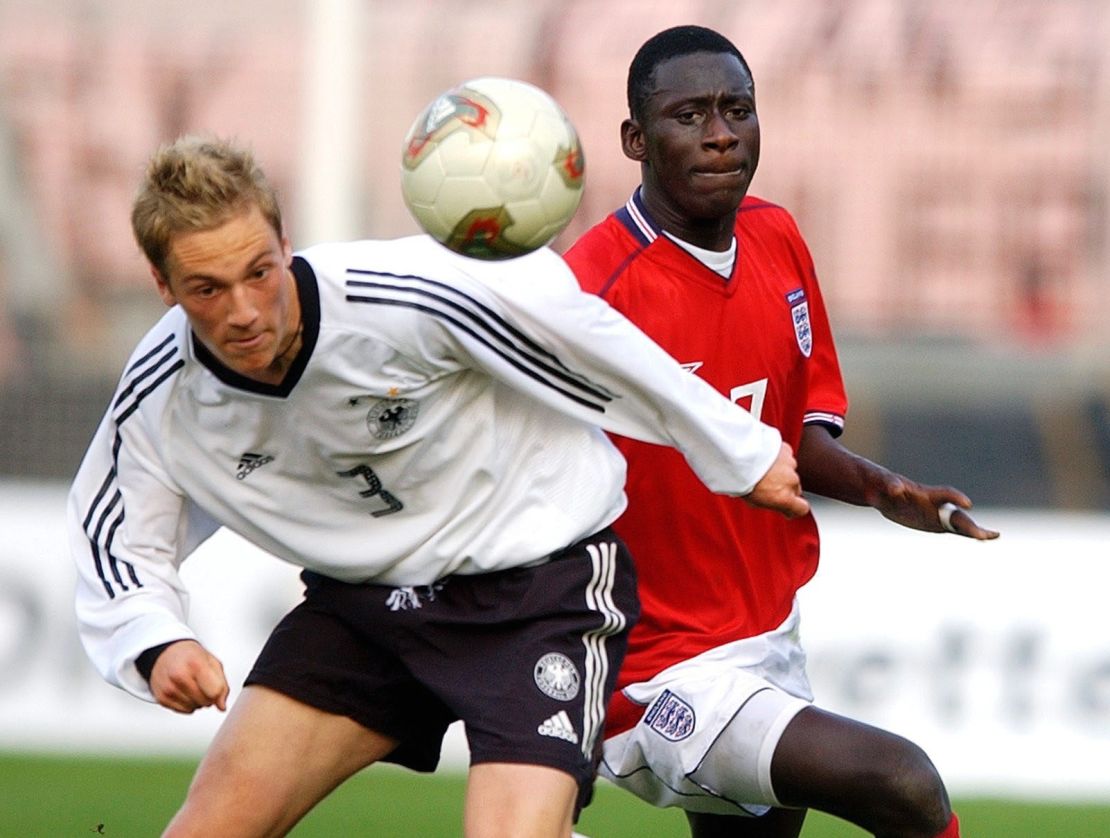
Dream becomes a nightmare
A move to Spain seemed to provide a second chance, with La Liga side Cadiz offering Samba a fresh start away from the glare of a football community conditioned to expect his success.
Asking for help
The suicide rate in the United States has seen sharp increases in recent years. Studies have shown that the risk of suicide declines sharply when people call the national suicide hotline: 1-800-273-TALK.
The International Association for Suicide Prevention and Befrienders Worldwide also provide contact information for crisis centers around the world.
Unfortunately, in this sunniest of climates, he found only darkness, while a niggling injury also led to a dependence on painkillers.
“I was alone – I was by myself, I was lonely. I had the most beautiful apartment looking over the sea, and I just kept constantly thinking about my time in England. I didn’t want to be there – I just wanted to end my life.
He attempted an overdose, but a teammate, who had regularly given him lifts to and from the training ground, happened to arrive soon after Samba had fallen unconscious.
“He found me there lying down on the floor. So, they took me to the hospital, the club really looked after me and stuff, and it was thereon that I woke up from it and thought ‘you know what, thank god I’m still here.’”
After a spell with Málaga B, Samba returned to England, plying his trade in the lower divisions with Plymouth and Wrexham.
Thereafter, he undertook somewhat of a nomadic career, veering from Haka in Finland to Panetolikos in Greece and Tønsberg in Norway, before his premature retirement at 29.
READ: How to get help for someone who’s suicidal
How Bands FC reimagined club crests through a love of music
READ: World Mental Health Day - Ex-footballer pushes for a ‘mental health revolution’
READ: PSG at center of storm over racially profiling young players
Fresh perspectives & new beginnings
Now a family man with a wife and daughter, Samba has grown to view his virtual self with fondness, enjoying the adulation the game has brought him in later life and even appearing in a television advert for the 2017 version of the game.
“At the time, I thought it was a burden, and I thought it had put a lot of stress in me. However, looking back now, no it’s not.”
Indeed, on his visit to CNN in London he happily recalls how, when purchasing a mobile over the phone, the salesman recognized his name, and decided that the month long wait for delivery wouldn’t do.
“The gentleman said ‘is that the real Cherno Samba?’ I went ‘yeah it is.’ He goes ‘Listen mate, that iPhone’s coming next day delivery so don’t worry about that!’”
Samba isn’t the first teenage prodigy to struggle to fulfill their potential and he won’t be the last.
Freddy Adu attracted the attention of Europe’s top clubs when he made his MLS debut at the age of 14 – he even trialed at Manchester United.
Similar to Samba, Adu failed to translate the early promise into a sustained career at the top of the game.
Instead of the glittering career that was forecast, Adu played much of his career in the lower leagues of world football. He’s currently back in the USA, playing for Las Vegas Lights.
Samba is now embarking on a promising career in coaching, completing his B license and is due to complete his A license later this year after spending some time with Tottenham.
He has also recently released a biographical book, which has acted as an outlet for the regret he still has from his playing career.
“I was still angry and frustrated. I thought the only reason to let this out and let the world know what happened to me was to put it in a book. I wanted the next generation to learn from my mistakes and learn from me.”
Cherno Samba: Still In The Game is available for pre-order at chernosamba.co.uk and Amazon


